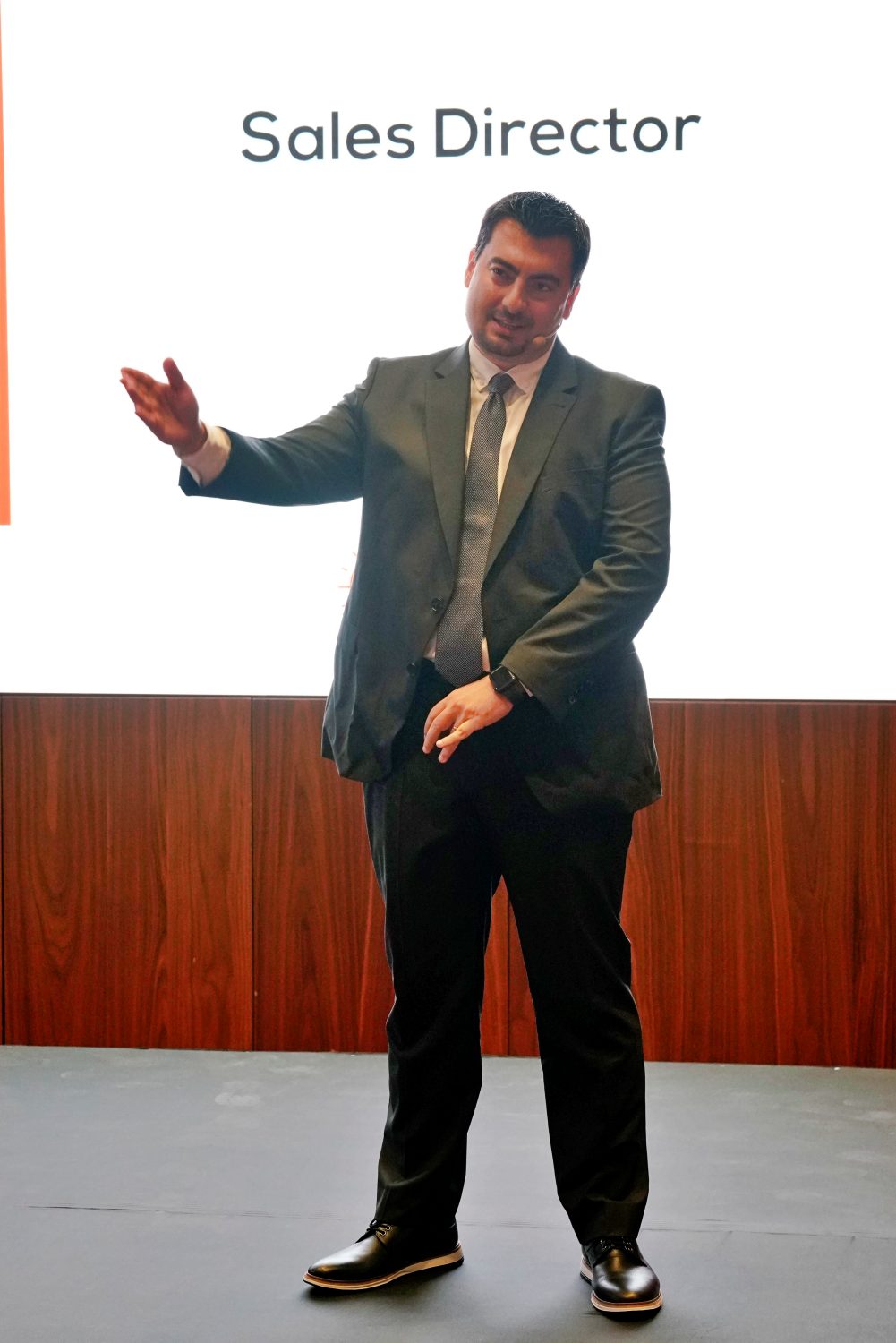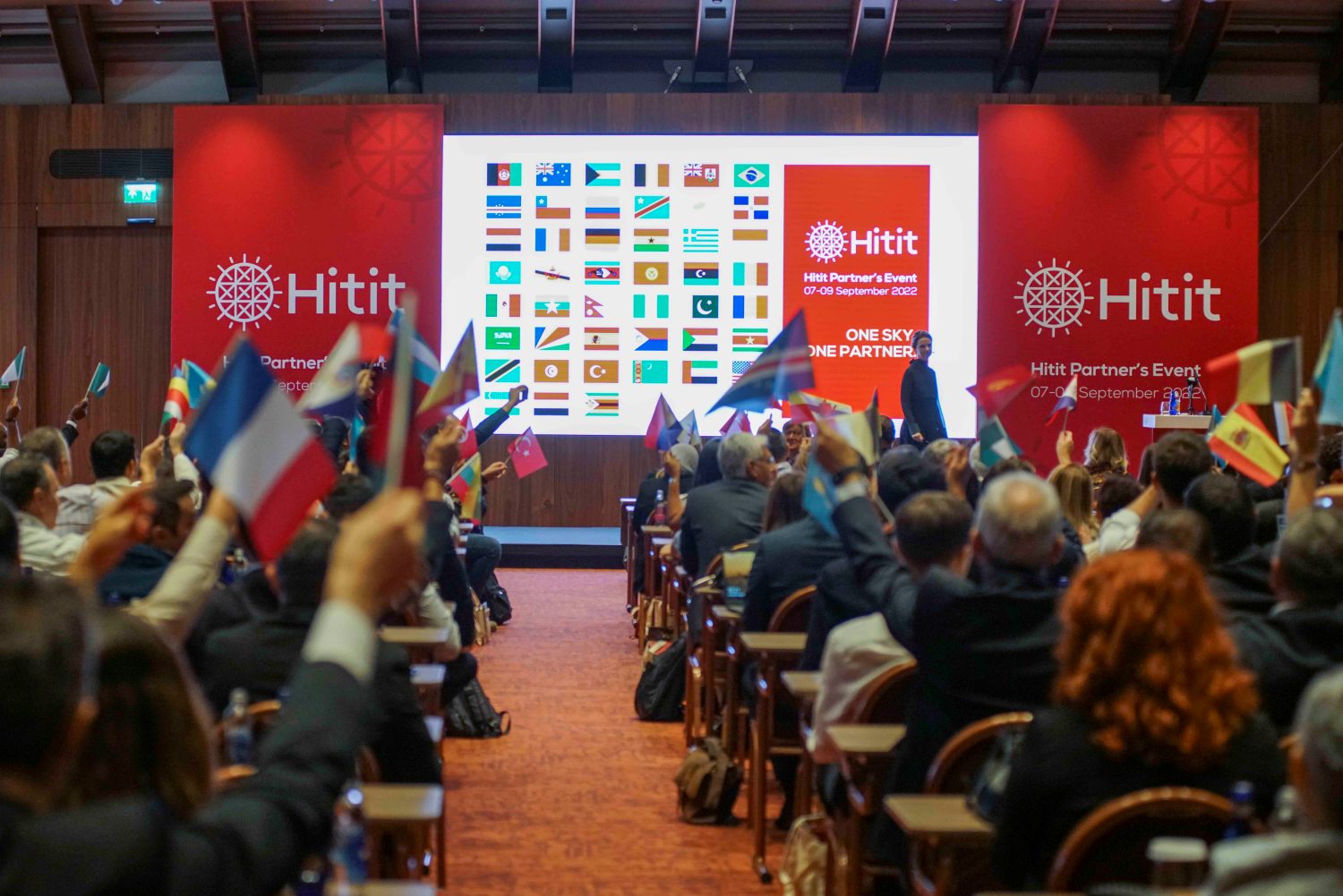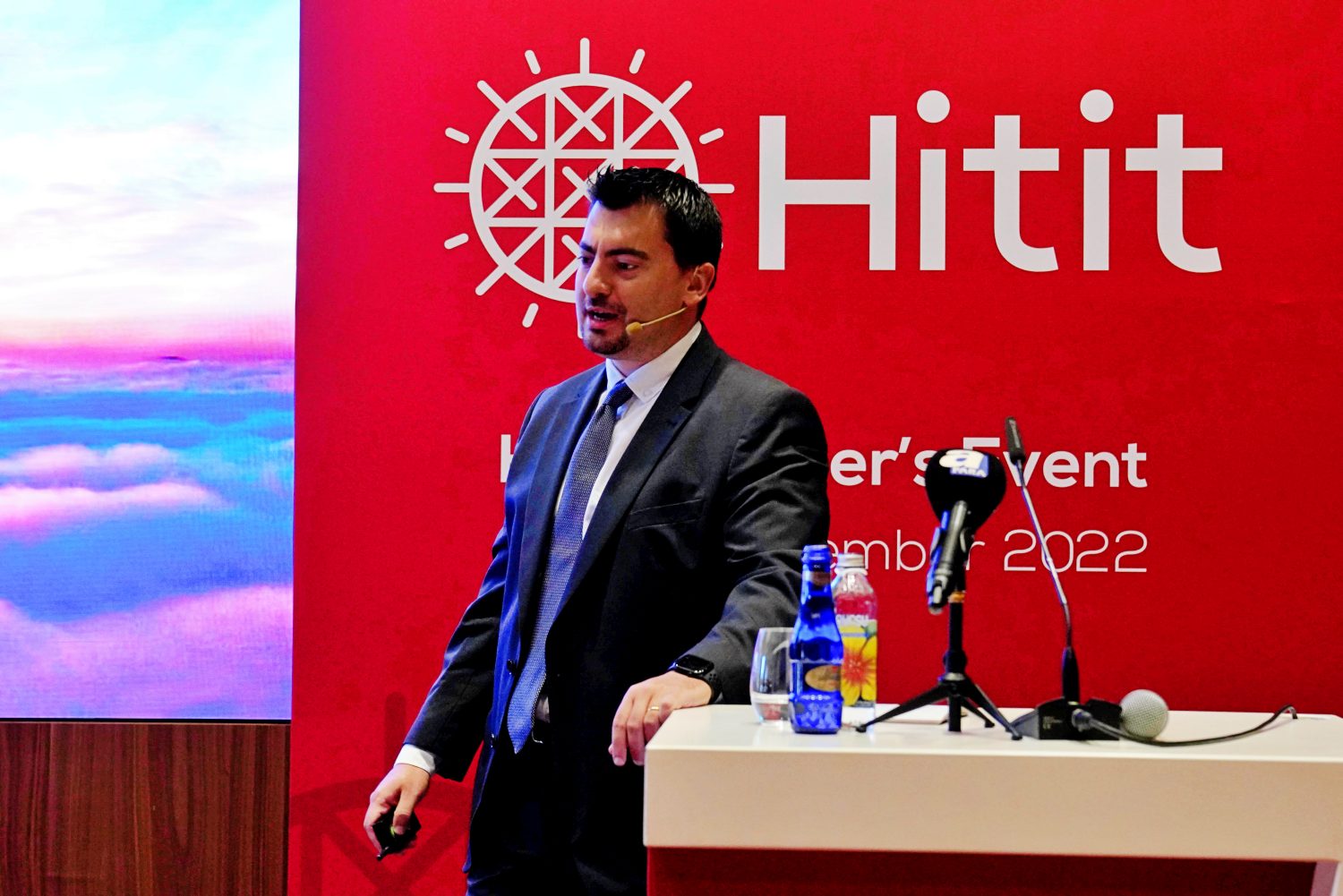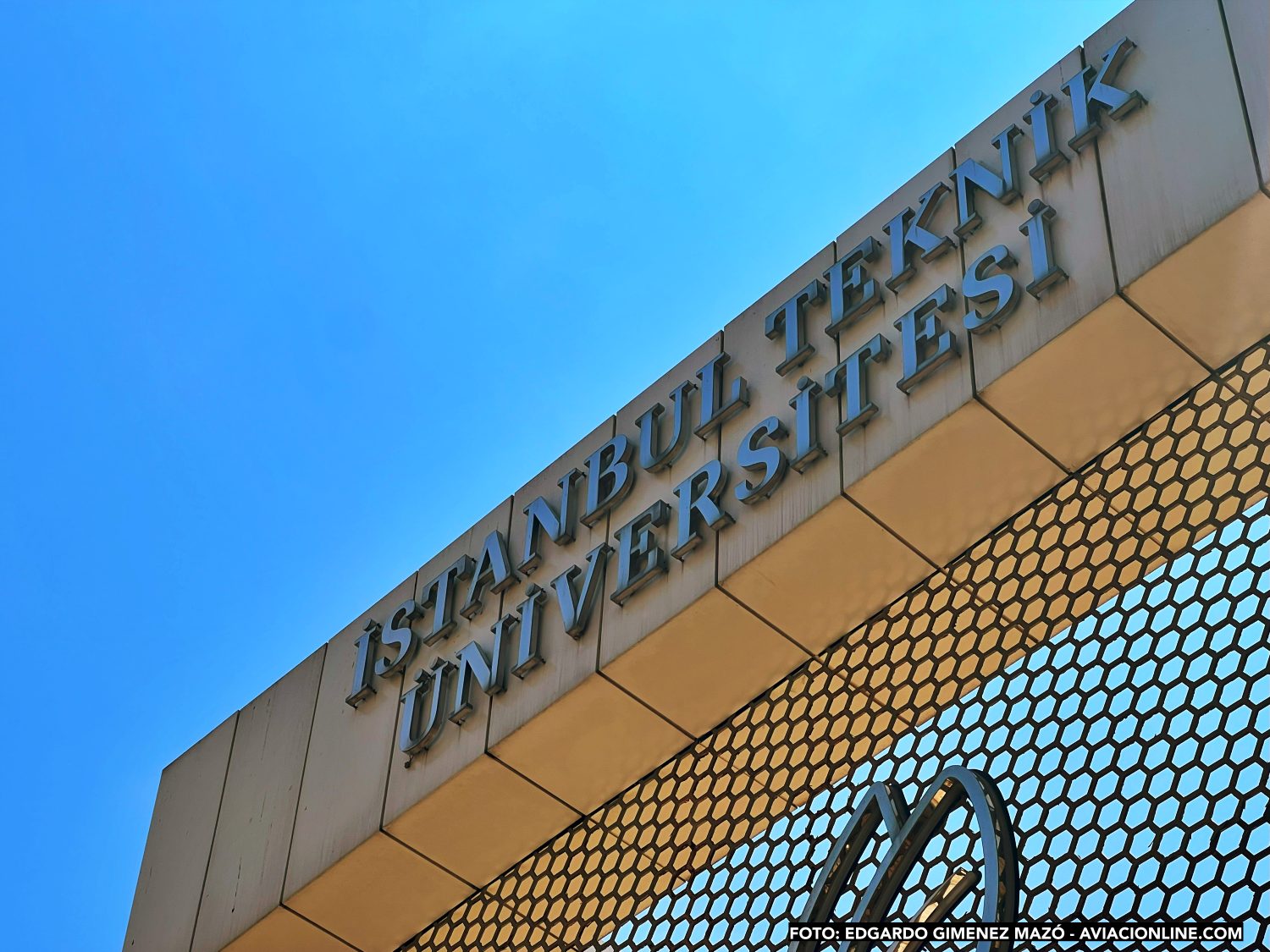Rising Above Giants: A Conversation with Cem Kırgız, Sales Director of Hitit – The Emerging Force in the Airline IT Industry
In the dynamic and ever-evolving world of the airline IT industry, dominated by two primary companies, Hitit has emerged as a remarkable success story. Founded in Turkey and initially positioned as an underdog, Hitit has overcome a multitude of challenges to become the third-largest vendor in the industry. The tenacity and innovation that have shaped this journey are emblematic of the company’s philosophy.
The history of Hitit is a compelling narrative of perseverance and strategic growth. Through careful positioning and differentiation in a saturated market, Hitit has not only survived but thrived, offering unique solutions and technologies on par with the industry’s leading players. The Sales Director of Hitit, Cem Kırgız, has been at the forefront of these achievements in the last five years, maintaining the founding principles of the company.
In an exclusive interview Aviacionline with Kırgız at Hitit’s headquarter in Istanbul, we explore the various facets that have shaped Hitit’s rise. We delve into the company’s history, examining how it has crafted its competitive landscape, and what sets it apart from other vendors. Kırgız shares insights into Hitit’s perspectives on growth, emphasizing the critical role of innovation in their strategic planning.
A special highlight of the interview is Hitit’s perspective on the Latin American market, reflecting the company’s global vision and commitment to expanding its influence. With an unflinching dedication to quality and continuous improvement, Hitit is a prime example of how ambition, innovation, and smart leadership can lead to monumental success. Join us as we uncover the insights and wisdom that have propelled Hitit from being a regional player to a global powerhouse in the airline IT industry.

Cem Kırgız is the Sales Director at Hitit, overseeing the global sale processes and all the related business that comes along with sales. He has been in the company for five years, having started in 2018. Before that he used to live in the US, in Chicago, where he grew up and studied to then move back to Istanbul.
AOL: – How would you introduce Hitit?
CK: – Hitit is a company that’s been around for 30 years, started by ex-aviation executives who used to work for Turkish Airlines, which, by the way, uses the in-house systems that they developed 30 years ago. Obviously, it’s the newer and upgraded version, but the foundation was laid out by the executives that started this company and then eventually it grew to be a global aviation IT player.
Hitit was a renowned vendor for loyalty solutions back in the day. The company started developing loyalty systems when the idea of having loyalty programs for airlines were just starting out. It has been significantly challenging to establish the brand as a credible Passenger Service Systems (PSS) provider in a legacy and risk aversive market.
Hitit has found its well-deserved place in the market. We still have a lot of room to grow. PSS are just one aspect of the solution portfolio that we have.
We cover all aspects of an airline from sales to operations, airport operations, general accounting, financial areas, merchandising, travel solutions, and cargo operations. We also look at travel agents, ground handlers. So, it’s not just airlines that we serve, but also other players in the aviation space in general.
AOL – You mentioned that Hitit has found its well-deserved place in the market How difficult was that journey, and what were the main challenges in gaining that credibility when you were up against two big players?
CK: – I think it’s a good story to tell. I have definitely found myself always working for companies that are fighting that uphill battle. It’s very much David versus Goliath, in a sense. And you are correct. There are two huge companies in this field that have been major market share leaders overall in the world, and they haven’t seen competition for maybe 50 years or so, since they started existing. It’s very much a duopoly. There are many reasons behind it: commercial, political, every aspect you can think of is there, dominated by these two companies.
So, when we talk about Hitit, this company started out as a loyalty systems provider in the late 90s. Loyalty as a concept was just starting out, and the first customer that this company had was Turkish Airlines with the Miles and Smiles program. It still continues. Hitit got to be known as a loyalty provider, gained quite a bit of customers, and grew to a significant size. Later on, it was sold in 2013, where we kind of separated our focus. Instead of just being a loyalty provider, we became an aviation IT provider in general. That’s where we saw the value. That’s where we saw the growth. It was a very bold move, a courageous move, because of the obstacles that the outsiders put in your way. It is also safe to say that we even had airlines in the past that just didn’t want to work with us because we’re a company based out of Turkey. We don’t see that now, and today we are the only company that I personally see that is now a competitor against the big two companies in this field.
Hitit is the only company that has airline partners, because that’s how we call our customers. We might see it as a partnership as opposed to just being an IT vendor that invoices the customer every month. We have gained airline partners on every continent from Australia to the US to Europe to Africa to the Middle East to Asia. We have migrated and support airlines in every business model that exists from the ultra low-cost to the typical network carriers.
Having that credibility over the course of many years has developed our brand recognition and credibility to come in front of airlines and pitch our business proposition, which can be automation, digital transformation, hands-on customer service. It’s that personal touch that we provide, because one thing that I have seen is that this industry is very much risk-averse, and you have in front of you airlines that haven’t seen competition other than the two bigger players.
That has actually resulted in the airline IT space, in general, being very much behind other industries. When you look at, for example, e-commerce, the likes of Amazon and others, the technology that they are doing now is at least 20 years in the future compared to what the aviation IT space is doing. It’s not just a lack of competition, so there are many others like heavy regulation, risk aversiveness, but the lack of competition in the field is definitely another big thing as well.
«The airline IT space, in general, is very much behind other industries»
We are very much fighting an uphill battle from every single aspect you can think of, where the customer doesn’t just evaluate you from just the technology that you provide. There are many other aspects, from political to financial to, you know, just being geographically located here.
So, it’s all about just being very transparent with the customers. We have things a little bit easier now, but we still have a very long way to go.

AOL: – Besides these two big players, how is the competition shaped for Hitit? How far behind is the company from them?
CK: – I think it’s important to say, because when you look at statistics, people can play around with it. I always keep that transparency aspect. So, one thing that I want to point out is we say we are third in the competition space in our competitive landscape. Now what that means is we take out regions that we don’t compete in, because of many reasons like political sanctions or just regional obstacles in our way.
There’re also many airlines that still have their in-house system where they don’t outsource it to other vendors, so we must take them out of the equation when we talk about market share.
We also have to look at providers focused on low-cost airlines that have been consolidated under the umbrella of the legacy providers.
There have been some providers that have left the business because it is a difficult one to be profitable. It is difficult to have to constantly offer the latest technology, and you also must commercially be reasonable when it comes to, you know, as a smaller player pitching out to the possible prospect airline, trying to find that good balance to maintain the long sustainability. A very big player that used to be in the space is not here anymore providing aviation.
Then there’s obviously Travelsky in China, which is regionally focused, as well as Syria and Russia which are very much sanctioned.
AOL: – The story of Hitit’s rise could serve as an inspiration for companies aspiring to reach similar heights. The sentiment may well be, ‘If they did it, we can do it too; we could also find our place in the industry.’ However, there must be key factors in place to prevent Hitit from being overtaken by those companies…could you identify them?
CK: – I think the most important thing in sales, and I think of it as a vendor that provides a service to customers, is empathy.
You can’t, for example, pitch the same story and the same business proposition to an airline in Argentina as opposed to Finland. Because every airline is based on the limitations of their region, on the limitations of their respective markets. The same pitch that might do wonders with an airline in Turkey might not fit the same aspect with an African airline.
There are roughly a little over 1000 airlines in the world, and when you look at the overall possibility of airlines that can utilize our service to the best of their ability, the alternatives are endless. But I think what has been lacking both from the other players in the market that are smaller than us or very much regionally focused is that I haven’t seen that level of empathy in everywhere, and people tend to be very aggressive when it comes to sales.
You can’t be aggressive when it comes to our markets. You can be aggressive if you’re selling watermelon on the streets because that’s the competition you need to do. But in our case, we are selling engineering, we’re selling knowledge. Anybody can make good technology now, you have developers everywhere in the world, you can develop flashy screens, you can say AI, the big popular buzzword now. Anybody can do it. But it’s the knowledge and the expertise that really differentiates Hitit against the others. It’s not about just a fee, you know, paying you this amount of money and I’ll give you this.
AOL: – I know it is difficult, but how difficult is to convince a new client to leave either an in-house system or one of the bigger players? Considering there’s so much risk aversion…
CK: – Last year I attended a big conference for a big RFP, and I remember getting questions about us being from Turkey. And, by the way, we’ve been working for almost 20 years with our largest customer, Pegasus Airlines, who handles 30 million passengers and have around 100 aircraft, so we had the credibility going back since 2005.
But when you look at the kind of questions that people ask you, especially in regions that you are less known, you rarely get condescending questions like, “can you guys do the simplest booking flows even?”, and I told them “You wouldn’t ask this to the more traditional legacy players just because of the brand recognition”. You see, the level of technology is not in parallel to brand recognition. You could actually have terrible technology, but you could have the best brand recognition and people will still choose you over the better technology just because the brand recognition.
We have grown in markets that are not as saturated as others. Africa was the first region that Hitit started to grow back in 2010 when we first started to be an international player. We then grew to the Middle East, Central Asia, and then eventually moved over the Americas and Southeast Asia. We have migrated airlines from legacy vendors, and these are all very much key aspects that hast built us that growth trend in 2018.
«We won half of the RFPs that we were invited in last year»
And that year is very much a benchmark for us in the sense that was our first legacy migration. And since that we have increased our number of customers five times. We have changed our message; we have changed the way we are communicating. And that changed how we have been perceived.
And as a result, we won half of the RFPs that we were invited in last year. So, our success rate is about 50%, which is a huge number when you talk about a niche market, where even the smallest airline takes many, many evaluation periods and the process of sales takes a long time.
I always say, and this is obviously an exaggeration, that when I talk to some airlines to make them understand the obstacles in our way, if any of the legacy vendors put an empty paper to the airline and said, “here is the contract, write whatever you want and I’m giving the solution for free”, they would get the customer immediately right from a logical sense. If Hitit did that, the airline would still go through any evaluation process. And that all has to do with the brand recognition, because nobody gets fired for choosing IBM, right?
As how we convince airlines, I think it’s all about the things that we’ve been talking about. Coming out of COVID, it’s all about the cost factor. It’s all about how much savings am I getting by moving to a different solution.
When I started in this particular business, it was unbelievable to me how little profit airlines make. If a $100 ticket gets booked, there are so many middle players in between that the airline needs to pay before realizing that as a profit in their cash flow. The systems that have been built around the airlines, in general, are very much old school and legacy ways, so they are costly to maintain, and it’s one of the reasons why it’s so expensive. Now it is changing but at a slow pace.
But we at Hitit try to be transparent with our costs; we try to empathize when we talk to airlines, speaking to them directly about how we can help them as opposed to what they are doing right now. We do our best in terms of communicating and demonstrating the solution. We put aviation experts in front of airlines. As the sales guy, I don’t go in front of them and try to talk to them about how their booking flow should be. I have technical experts with many years of aviation background who sit with them. Our technical sales directors and our technical sales teams talk with them, and they speak the same language. We try our best to speak to them in their terms and on their level, and then we hope for the best because that’s the best we can do considering the obstacles that have been put in our way, and it has proven successful for us.
«We put aviation experts in front of airlines. As the sales guy, I don’t go in front of them and try to talk to them about how their booking flow should be. I have technical experts with many years of aviation background who sit with them.»
Another thing is we have solutions that cater to each and every department of an airline, whether it’s reservations, operations, cargo, and so on. Each department of an airline requires different expertise. There are companies out there that provide, let’s say, operational solutions or just provide accounting solutions, and they make a living off that. We provide under our CRANE suite, solutions that cater to each and every department of an airline, and we have solution experts that can consult and provide that implementation and ongoing support for them. That business proposition, for example, resulted in Hitit being the number one preferred PSS provider when SITA, which was a huge player in this market, decided to leave this business.

AOL: – And moving forward, when you close the deal, how does the implementation work? I know that during the pandemics Hitit successfully managed to make several migrations remotely and in very fast terms considering all of what the world was living.
CK: – Well, one of the risk-averse aspects is obviously the implementation. You are essentially taking out the foundation of a construction and then replacing it. There’s definitely a lot of handholding, a lot of directing the airline in the correct direction. We take care of as much as we can in terms of facilitating the implementation and training. Whether on-site or off-site, we try to do everything efficiently.
We have the record, as far as I know, of migrating a country’s flag carrier in 30 days, from another provider to Hitit. Obviously, that’s not preferred; we’d like more time as with any project, but that flexibility is required in the aviation space. We’ve seen from our bigger competition that when an airline needs something, whether it’s a full implementation project or just integration, and the vendors come back to them and say, «OK, give me six months, one year, 18 months or so,» that’s unacceptable in an industry where things move very fast. You don’t know what’s coming tomorrow; it could be a natural disaster, it could be something else, it could be positive, it could be negative. But in the aviation market, airlines need that flexibility, no matter how small or big they are.
«We have the record, as far as I know, of migrating a country’s flag carrier in 30 days, from another provider to Hitit»
And that leads me to another important point. You have very big players in the aviation market in general. You have United Airlines, American Airlines, Lufthansa, Singapore Airlines, Turkish Airlines, Emirates, and all that. Airlines like these are the mothership of the market, but they are only a handful compared to the over 1,000 airlines that exist in the world.
There are smaller airlines with regional services that are crucial to certain communities; there are airlines that operate on the outskirts of others; there are private airlines trying to provide different types of services that cater to perhaps the younger generation; there are leisure airlines that travel to the Caribbean islands; or airlines that travel to regional manufacturing areas for consultants and businesspeople. So, you can’t just pick the larger airlines that you earn the most money from and then just leave out the rest to suffer. And I think that is a very important factor that Hitit excels in.
Nobody can say we do things perfectly; I’m not going to sit here and say Hitit does everything perfectly. There’s no company in the world that claims that, and if they do, they would be lying to you. But I think that flexibility and the empathy that I always emphasize, and understanding when and where the airline needs a particular development or implementation, is the key to success.
And I think during these implementations, whether it’s off-site or on-site (it had to be off-site during COVID obviously), we really kept the communication going, and we understood where the risk areas were, and we worked through them.
AOL: – And are you still after those very large airlines you mentioned?
CK: – Yes, of course, I think that the solution that Hitit provides can easily service the biggest players in the market. I have no concern about that. But that’s not to say that Hitit is only after bigger players. I think that Hitit is a company that is going to help the aviation space in general whether an airline uses Hitit or not, because now there is competition in the market, and legitimate competition I’m talking about, because there was always some sort of competition, but now it’s a legitimate competition where the bigger guys need to look in the mirror and say, “hey, we need to maybe do thinks differently”.
«There should be more players in this field doing things differently and giving the airlines alternatives because the more alternatives exist, the more Hitit and others will have a chance to work with those big carriers»
It’s the same with anything, when you are comfortable and you are the market leader, you don’t really care that much about whether you do everything perfectly because there’s nothing pushing you and trying to get you to do your best. But now I think there are players, and hopefully there will be other players -because It’s not just Hitit that should be here. There should be more players in this field doing things differently and giving the airlines alternatives because the more alternatives exist, the more Hitit and others will have a chance to work with those big carriers, because clearly the bigger carriers are the more risk averse in terms of migration. But I think that the aviation space, from what I see, is starting to wake up.
GDS, for example, is decreasing significantly slower in some areas than others, but in terms of direct sales channels, a lot of people, especially the younger generation, are buying their plane tickets through the websites or online travel agencies as opposed to going to the classical route. That generational differentiation in customer behavior is going to result in the vendors, and especially vendors that provide the technology, the front facing technology to airlines to do things differently. And I think it’s going to increase the competition.
AOL: – You told me earlier that the airline IT is 20 years behind the IT in other industries. Since you come from other industries, which are the key differences that you see?
CK: – The flow of data in the aviation industry, especially integration, involves many third-party players. PSS is essentially the backbone of an airline’s IT infrastructure. Many different third parties are engaged, whether they are online travel agencies like Expedia or Skyscanner, or other larger and smaller players. You have Global Distribution Systems (GDS) that deal with travel agents and connect directly to the PSS; you have the airline’s website itself; you have aggregators; you have all these different players that gather data such as fares and scheduling from the airlines and then try to have their related systems book those tickets. This flow of data has been facilitated by very old technology in the past, but it’s changing now, becoming much better. Terms like New Distribution Capability (NDC) and offer order management are becoming common. E-commerce, for example, has been utilizing equivalent concepts for a long time, say, 20 years ago or so.
The fact is, the integration between systems, whether from a sales or an operational perspective, is very archaic in the aviation IT space. You’re still dealing with telex messaging, for instance, and the old-school way of conducting business.
Nowadays, though, I think there’s a push from airlines for newer technology. It’s mostly because of the limitations of the bigger players, who service the most number of airlines, and are very much influenced by the capabilities of those technologies.
Hitit has been implementing what today is called NDC since its inception, as that’s how we designed our technology. But when you look at the older players, those are systems that have been in place for many years, 30 or 40 years, since e-tickets have been introduced.
So now you’re hearing a lot about NDC because those older systems need to evolve in the way they conduct business.
Another emerging area is artificial intelligence (AI), which is slowly taking hold. You see private and newer airlines in the European and Southeast Asia regions starting to implement AI-driven optimization functionalities.
To provide an example – since everyone talks about AI but seldom gives clear examples – imagine a morning flyer, a consultant who flies in the mornings and likes to purchase coffee and a bagel. Once the airline’s systems gather this data, the AI in the background shows a personalized offer. For the next booking on the same route, the website may automatically offer coffee and a bagel or morning flights in general, based on the pattern of behavior. Or conversely, if evening flying with a glass of wine and spaghetti is preferred, it may offer that.
So, these types of personalized offers and communication methods with the passenger are likely to increase in the future. At Hitit, we are already implementing these features, utilizing AI and optimization tools for our customers. This is only the beginning, and I believe the application of AI optimization in the aviation industry is poised to grow.
AOL: – And are there examples of AI using optimization for the operational side of the airlines?
CK: – Yes, of course, when you look at operations obviously fleet assignment for example, which aircraft needs to be allocated to which destination to which slot. You have optimization on the operational side where, for example, if there is a disruption, meaning a flight gets cancelled and the system looks at which aircraft needs to be allocated to which transit flight, which passenger needs to be allocated into which next flight. So, there are a lot of disruption management optimization features out there, a lot of fleet optimization features, crew management, etc.

AOL: – And going back to Hitit, how is your sales team organized?
CK: – As I mentioned before, we truly much believe in localization. So, we have a sales team here at the headquarters in Istanbul that handles the core sales cycle. We have standard salespeople that keep the relation going and then we have technical salespeople where their pure job is to explain the solutions.
And then when you look at globally, we have over 10 representatives in their respective regions from United States to Canada, to Brazil, to Argentina, Europe, Africa, Middle East, India, Pakistan, Malaysia, and Japan. And we are growing in that aspect. I think that people really trust and respond in a positive manner when someone speaks your locale language and can understand the difficulties that you are going through.
One just big sales process that we’ve just won is Anadolu Jet, the Turkish Airlines subsidiary, and being a local company and being able to speak the local language helped Hitit provide a positive message to that airline during the RFP process. Obviously, that’s not the only thing, but I think it’s an important factor that shouldn’t be overseen.
«I always say, it’s easy to be flashy, to have marketing videos, and anybody can do that, but not everybody can speak the local language and understand their desires and difficulties»
So, when I look at the overall geography, we really very much work with an extended sales team in local markets as much as possible, and we are growing that by the way, depending on the need, and depending on the level of frequency, we definitely like to work with people outside as well. But it’s not to say that we’re going to go and open a fifty-person office in remotes places of the world that are there just for the show. We want people that are efficient, that are good at their job and that have the network to communicate with the right people. In a way we like the start-up spirit and dynamic in our operations.
AOL: – And where do you foresee most of the growth for Hitit?
CK: – What make us unique is the global growth. About 7-8 years ago I would have said just Africa, Middle East, Central Asia, and the CIS region. I would grant that we grew the greatest number of customers in those regions, but today, I think it is the markets that we are just starting to grow: Southeast Asia is definitely a big opportunity for us. We have gained quite a bit of customers in the past couple of years there.
I think that with some of the things that has happened in the aviation IT space, I would say North and South America are the next space for us. When you look at it you would say those markets are saturated, so it is more difficult to get into, but I definitely believe that Hitit has a chance to be a good market representative, in South America- especially in Brazil, in the US and Canada.
And it’s kind of like a snowball effect in that sense. Especially in the aviation industry, once you start small, you build up the references, you build the recognition and then eventually you become a snowman.

AOL: – And how do you see the Latin American market in particular?
CK: – Unfortunately, there’s been a lot of bankruptcies that I’ve seen coming out of COVID, a lot of smaller private airlines having gone out of business or being consolidated under a big umbrella. That obviously brings now a lack of competition.
Nowadays there are less airlines in the South American market that are able to stay alive due to many reasons. And it is the market with probably the highest risk aversion compared to other parts of the world, which is why, for example, we are investing into having a first line support in Spanish.
«When we look back 5-6 years ago, very few people knew about us in South America, but now Hitit is a known company, we are invited to almost every RFP that exist, and I think that in the next couple of years we will win some more accounts there»
There have been many players in the past that have tried to get into the South American market and have been unsuccessful and just let it go. But we are not going to let it go. We believe there’s a huge opportunity for us in Latin America, but I think we need to be patient, and we have started to see positive responses.
AOL: And what about Spain?
CK: – We have a presence in Spain in terms of a local extended arm of the sales team, but we don’t have customers yet. We do have many airlines that fly to Spain, so our systems are being used in that market, for example, our Departure Control System.
Spain is also a big market for us, but Europe is very much saturated, and very difficult to gain market share although we are very close. However, we have opened up an office in Amsterdam recently and look into investing more in this region.
In general though, I would say that South America is a much bigger opportunity for us at the moment.

AOL: – How much does Hitit dedicate to innovation, to research? I know that you are here at the campus of the Istanbul Technical University, so there’s a large flow of human resources coming from there, but how does Hitit articulate that?
CK: – When I started with the company five years ago, there was about 200 people or so working, and nowadays it’s close to 450 and growing. We recently, about a year ago had our IPO and we spend that money for investment in developing new solutions and enhancing our infrastructure. We have a commitment not to our airline partners but also to our investors now.
About 80% of our staff is on the technology side. As you said, this university give us access to a lot of young professionals. And with the younger generations comes ideas, innovation, and newer technology.
The younger generations don’t want to develop in old languages, they want to develop new things, so it really brings us flexibility.
When it comes to innovation, I believe it is paramount. In a highly saturated and challenging market filled with obstacles, being a transparent and positive company for the airline is essential. However, it’s not just about that; we must also provide the technology we claim we can, on par at least and better in others with the same level as the bigger players in the industry.
One mistake can determine your fate in this market. Just one project that fails, especially when it comes to bigger airlines, can destroy all the credibility you work for 30 years.
So, I think it is extremely important for us to constantly keep the innovation going. And how we handle it? In terms of development, around 30% comes from our partners. We listen to their ideas, and we develop the solution they need. 30% comes from Hitit, from our developers, our business experts. And another 30% come from the industry, from IATA or other industry stakeholders. Obviously, the percentages change year over year depending on the times.
And then there’s new products that come into play when we talk about artificial intelligence, dynamic pricing, ancillary support- offer and order management system, operational optimization. Those are all newer products that are also being developed in the backend.
When it comes to our strategy, we must not only keep up with technology but also strive to go beyond it. As we face an uphill battle, the need to consistently prove ourselves becomes imperative.

/https://aviacionlinecdn.eleco.com.ar/media/2023/08/Cem-hitit-sign.jpg)
Para comentar, debés estar registradoPor favor, iniciá sesión